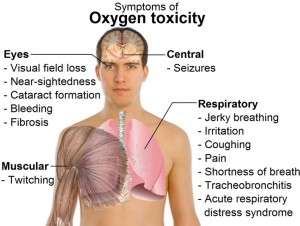
Overdose of any kind is a serious condition
With both heroin and opiate overdose, death or surviving completely relies on proper breathing and oxygenation. Fortunately, most drug overdose cases do not require hospitalization and most recover without incident, if the person is alert at the time of the overdose.
Oxygen in the blood stream is essential to human life. Without it, we would suffocate. Oxygen carries carbon dioxide along with it, as well as other gases that are necessary to sustain life. When oxygen levels in the blood fall below a certain level, it is referred to as an overdose of oxygen. The oxygen can be depleted through various ways, including exposure to drugs, physical trauma, or anemia.
Oxygen-rich blood gives off carbon dioxide and other gases as a result of its absorption into the bloodstream. It travels throughout the body via the bloodstream and provides oxygen to cells in the brain. The blood carries blood sugar to different parts of the body, so it is necessary to maintain a balanced level of glucose in the blood. This balance is maintained by the brain by regulating the amount of blood sugar in the blood.
When blood is deprived of oxygen, it cannot perform all the functions it needs. Decreased blood flow and increased risk of infection are due to lack of oxygen. The heart beats harder and faster than without oxygen. Also, muscle contractions and breathing become more frequent, loss of consciousness occurs. When the oxygen in the blood decreases, it takes longer for the brain to process it and forces the brain cells to use glucose for energy. This causes hypoxia and coma.
If someone you know suffers from an overdose, it is recommended that you seek immediate medical attention. If someone you know doesn't show any symptoms, it's a good idea to wait until they get worse before trying to treat them. The reason for this is that once an overdose is detected, the consequences are usually irreversible, which means there will be no way to reverse or get rid of the problem.
When someone has been exposed to drugs, they should show some or all of the following symptoms. If someone stops breathing, does not respond, or has seizures, take them to the hospital immediately. After the person stops breathing or stops breathing for a few minutes, try not to bring them close to the person's heart. and call 911.
Often, overdose victims do not remember what happened when they were unconscious, or may not know that they were taking something. It also often happens that there is no need to urinate. These symptoms indicate the need for medical attention. If the person is not responding, check to see if they are breathing or feeling comfortable. If the person has difficulty breathing and seems lifeless, take them to the hospital immediately. This is very important because if a person is not breathing, they may have seizures or cardiac arrest and need urgent medical attention.
Once someone has been revived, they must have their airway opened and oxygen supply restored to make sure they are getting enough oxygen. This process may require a surgical procedure known as IV or a procedure known as a cannula insertion. The procedure will be performed by a certified emergency medicine specialist and will be covered by medical insurance. Even if a person has health insurance, the cost of the procedure can run into the thousands of dollars. If there are any signs of heart attack, such as dizziness, chest pain, confusion, loss of consciousness, or breathing difficulties, immediate medical care is needed.
